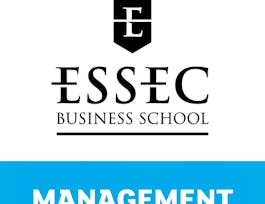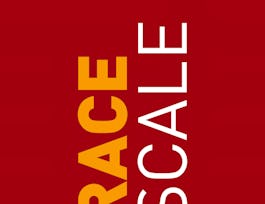You are interested in welcoming processes of migrants and refugees? You want to dedicate yourself to teaching lamguage and literacy? The objective of this course is to get to know the simultaneous process of literacy and language learning in the host society for migrated young people and adults.


Oralpha: Literacy for new citizens, a course for trainers
Taught in English
Details to know

Add to your LinkedIn profile
3 quizzes
See how employees at top companies are mastering in-demand skills


Earn a career certificate
Add this credential to your LinkedIn profile, resume, or CV
Share it on social media and in your performance review

There are 4 modules in this course
The aim of this course is to learn about international migration and the experiences of immigrants in the receiving societies, as well as to train trainers to guide them in simultaneous processes of language and literacy learning, as an essential need for social integration in the host society.
What's included
1 video7 readings
This module provides a general overview of international migration and social integration in 21st century Europe and the essential role of languages in it. Topics covered:<br>1. HUMAN MIGRATION AND MOBILITY:<br> a) Migration flows, regions and types.<br> b) Rights, regulations and migrants’ profiles.<br> c) Super-diversity, cities and refugees in Europe.<br>2. BORDERS AND LANGUAGES:<br> a) Reception systems for newly arrived migrants and asylum seekers and language provisions.<br> b) Immigrants’ experiences, interactions and language learning.<br>3. UNDERSTANDING SOCIAL INTEGRATION:<br> a) Integration models alongside history, with a particular focus on the intercultural approach.<br> b) Intersectionality, belonging and bordering .
What's included
4 videos5 readings1 quiz
This module aims at providing a general overview of the students’ and teachers’ profile. Topics covered:<br>1. EXPECTATIONS AND NEEDS from students in relation to integration (i.e. staying or leaving the country; working; studying) and language. <br>2. PLURILINGUAL COMPETENCE (which are the students’ communicative practices? Which languages they already use? In which contexts? To reflect on key concepts to describe communicative competence of migrant and refugee students (Plurilingualism, translanguaging, superdiversity…)<br>3. STUDENTS’ BARRIERS to access language and education rights beyond classroom methodology. For example: enough number of courses; gender-related lack of ”awareness”/discrimination, system knowledge barriers; legal status; gaps in the educational system; policies to discourage to remain, mobility issues, linguistic diversity lack of awareness (e.g. the role of literacy in mother tongue). <br>4. TEACHERS’ PROFILES: expectations, working conditions, ideologies, training, expertise… in relation to ORALPHA methodology and NEEDS of training. <br>5. TEACHING COMPETENCIES: (i.e. adaptation skills, how to overcome stereotypes; gender issues; to value previous language
What's included
7 videos4 readings1 quiz
This module aims at providing a general overview of the theoretical basis that is beyond L2 literacy classes. Topics covered:<br>1. L2 THEORY on second languages teaching and the specificities of low educational background students.<br>2. LITERACY THEORY, main theories of literacy teaching and the specificities of L2 teaching to people with a mother tongue that differs from the host language.<br>3. WAYS OF LEARNING, illiterate people ways of learning and ways to develop reading and writing skills. <br>4. ORAL SKILLS the importance of oral skills development in the L2 literacy class; specifics mechanisms to promote the orality in L2 literacy lessons<br>5. GROUP DYNAMICS, the importance of emotions and socialization in L2 literacy class; specifics mechanisms to promote group cohesion, motivation, self confidence, etc. In L2 literacy lessons. <br>6. INTERCULTURAL COMPETENCES L2, the importance of introducing intercultural approach (students, teachers and materials).
What's included
10 videos4 readings1 quiz
Offered by
Recommended if you're interested in Other Languages

ESSEC Business School

University of Colorado Boulder
Why people choose Coursera for their career





Open new doors with Coursera Plus
Unlimited access to 7,000+ world-class courses, hands-on projects, and job-ready certificate programs - all included in your subscription
Advance your career with an online degree
Earn a degree from world-class universities - 100% online
Join over 3,400 global companies that choose Coursera for Business
Upskill your employees to excel in the digital economy
Frequently asked questions
Access to lectures and assignments depends on your type of enrollment. If you take a course in audit mode, you will be able to see most course materials for free. To access graded assignments and to earn a Certificate, you will need to purchase the Certificate experience, during or after your audit. If you don't see the audit option:
The course may not offer an audit option. You can try a Free Trial instead, or apply for Financial Aid.
The course may offer 'Full Course, No Certificate' instead. This option lets you see all course materials, submit required assessments, and get a final grade. This also means that you will not be able to purchase a Certificate experience.
When you purchase a Certificate you get access to all course materials, including graded assignments. Upon completing the course, your electronic Certificate will be added to your Accomplishments page - from there, you can print your Certificate or add it to your LinkedIn profile. If you only want to read and view the course content, you can audit the course for free.
You will be eligible for a full refund until two weeks after your payment date, or (for courses that have just launched) until two weeks after the first session of the course begins, whichever is later. You cannot receive a refund once you’ve earned a Course Certificate, even if you complete the course within the two-week refund period. See our full refund policy.












